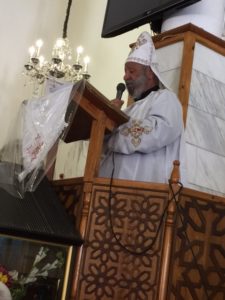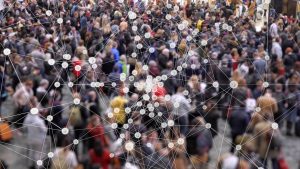Again, the influence of the new media in giving citizens a voice in the decision about who governs them was on display during the attempted coup against the government of Recep Tayyip Erdogan of Turkey. The coup plotters in Turkey resorted to the traditional playbook of military takeover of power and seized the traditional media outlets notably the Turkey Radio and Television ostensibly to be able to control information flow and drive their narrative to the citizens. This is a strategy familiar with most Nigerians who lived the era of repeated cycles of military putsches in the 60’s, 70’s, 80’s, and in particular the early 90’s Gideon Orkar –led coup that bore a semblance with the failed coup in Turkey.
But the reality is that mobile technologies have changed the interaction of citizens and especially their ability to mobilize towards a common cause. What is so novel about new media’s potency to galvanize public opinion in the case of Turkey is that the President Erdogan, who was outside the country when the coup occurred, rallied his citizens to upstage the rebels. He succeeded and that was telling of the regard his supporters had for him. So, while the new media became effective tools to protest against government, it turned out in the case of Turkey, that citizens used the new media to rally support for the government. 
While the coup was underway, President Erdogan used the video capability of FaceTime on his mobile phone to broadcast to his fellow citizens, urging them to take to the streets and stand up to the rebels. Social media channels, such as Facebook and Twitter, reinforced the message by showing images of people standing in front of tanks and on top of them. CNN showed video of soldiers abandoning tanks in Istanbul, and by morning, civilians were climbing onto the tanks and waving flags, according to images posted on social media. It’s not very common to see citizens defend their democratic votes. It appeared there was unity in defying the military interlopers including political opponents who did not appear to exploit the situation. It was people’s power on display.
The situation was however, different in 2001 with the uprising against the then president Joseph Estrada of Philippines that was mostly coordinated via Short Message Service (SMS) using mobile phones by citizens. In a response to backroom deals by the country’s legislators to cover up charges of malfeasance against the president, the country’s 4.5 million mobile phone users at the time ultimately forced the president out of office. The public pressure was so massive and rapid that Estrada himself attributed the collapse of his government to what he phrased as “the text-messaging generation”.
The same generation became active again in the so called Arab Spring that forced Hosni Mubarak out of office in Egypt in 2011. That movement that engulfed the entire North Africa and Middle East was also propelled by the new media. Like in the Philippines, it was to chase a leader out of office and not to protect a leader like in the case of Turkey. In 2007, Kenyan citizens utilized text messages to a full effect in provoking intense citizen participation in the controversial presidential elections of that year.
Time and time again technology made it possible for the will of the people to prevail and played an important role in influencing transparency, outcomes, and making it possible for ordinary citizens to play a greater part in upholding the wishes and aspirations of the majority and defying selfishness of a tiny minority
Turkish President, Mr. Erdogan, like other coup survivors in the past risk the possibility of squandering the international goodwill generated after the coup’s collapse. Erdogan, an Islamist who has dominated politics for more than a decade may likely alienate many of his supporters and the international community by his increasingly autocratic behavior. The president must respect the country’s constitution and extend deserved due process to the perpetrators of the coup. The easiest instinct will be to kill the rebels and their collaborators but in today’s world that cherishes human rights and dignity, death penalty is no longer fashionable.
In the final analysis, Africa has something to learn from the aftermath of the coup attempt in Turkey. Unconstitutional approach to grab power is anachronistic and appalled by all civilized world. The fragmentation of the media makes it impossible for any junta to succeed in the overthrow of a democratically elected government. Today, the landscape is different and the ubiquity of social media and mobile communication devices give power to the people and deny potential mutinous soldiers a platform to hijack the people’s will.
But, a more enduring question that is worth pondering about is: should a similar attempted coup occur in an African country as witnessed in Turkey recently, would citizens defend their president as forcefully as the Turks defended President Erdogan who was away on vacation during the failed putsch? It is very unlikely given the excitement that ushered previous military coups in the continent.
Unfortunately, the unfolding events in Turkey does not give hope for a democratic future of this unique country sandwiched between hotbeds of intolerance in the world. The Prime Minister’s crackdown on journalists and basic freedoms in response to the coup attempt is to say the least unhelpful to a society that rose to defend his mandate even when he was out of the country.







Erdogan is a typical dictator. He didn't hide his antics. UN should move in immediately and call him to order not after he would have completed crimes against humanity or plunged the country into cataclysm or unimaginable proportion.